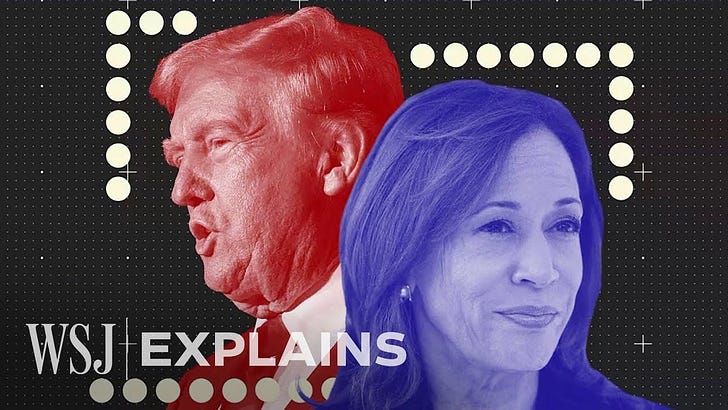A reminder for paid subscribers: To stay current with major developments between issues of our newsletter, check our Campaign 2024 Update page for the latest polls and election analyses.
Trump Takes Narrow Lead Over Harris in Closing Weeks of Race Aaron Zitner, Wall Street Journal [unlocked] Donald Trump has opened a narrow lead in the presidential race, as voters have adopted a more positive view of his agenda and past performance and a more negative view of Kamala Harris, a new Wall Street Journal poll finds.


